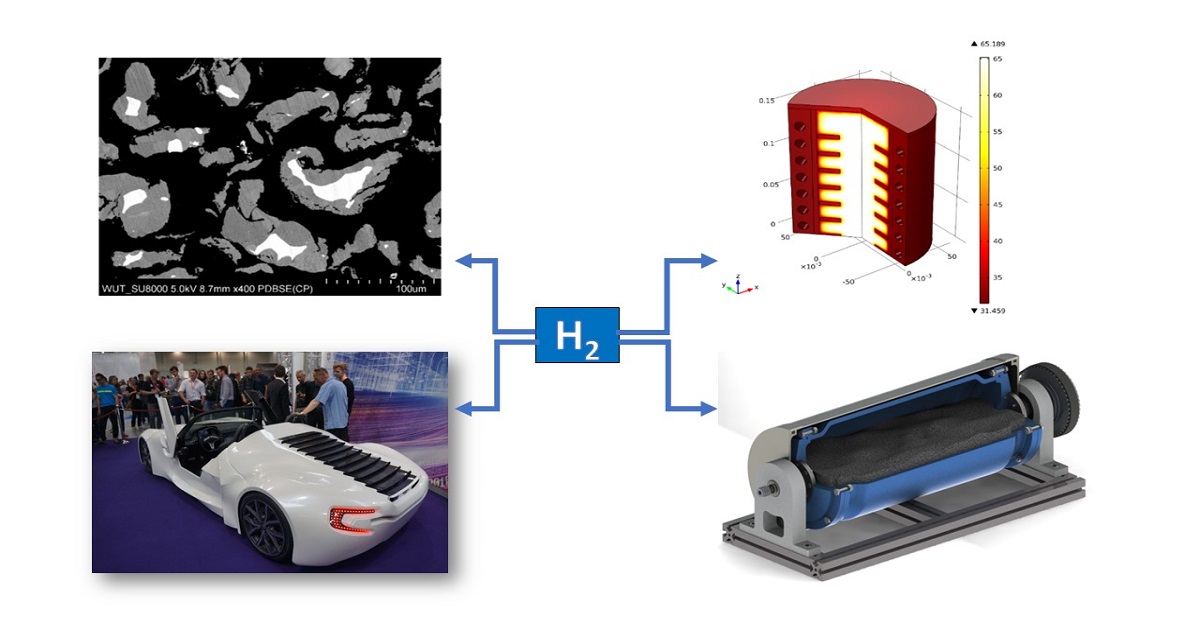Hydrides-Based Materials, Technologies, and Applications
A special issue of Materials (ISSN 1996-1944). This special issue belongs to the section "Energy Materials".
Deadline for manuscript submissions: closed (10 August 2023) | Viewed by 229

Special Issue Editor
Interests: hydrogen storage; energy storage; mechanical alloying; reactive ball billing; ball milling
Special Issues, Collections and Topics in MDPI journals
Special Issue Information
Dear Colleagues,
Solid-state hydrogen storage materials (SSHMs) have fascinated researchers all over the world for the last 70 years. Despite the fact that the very ambitious DOE (Department of Energy, USA) expectations for mobile hydrogen containers are being constantly lowered, for most of the experts in the field, it is obvious that without some new breakthrough, it is very unlikely that the currently used solid-state materials will solve the hydrogen storage problem for the transportation sector.
This does not mean, however, that the progress made in this field within those years was for nothing. In fact, there has been great progress with regard to hydrogen-containing materials and materials engineering. Binary hydrides that are considered as good candidates for storing hydrogen in a solid state are now only a very small fraction of the investigated compounds. The group of prospective materials has been largely developed and now includes, for example, intermetallic-based hydrides, complex hydrides, alanates, borohydrides, amides, and others. This progress has involved not only the discoveries of new materials, but also of methods for forcing many of these materials to be reversible in relatively mild temperature and pressure conditions.
Together with the great number of studied compounds, new experimental techniques have been developed and improved to allow for the successful synthesis of materials and composites, and for their effective modification with catalytic additives. This progress also involves characterisation techniques, which have become more precise, faster, and more flexible.
Materials considered years ago as a source of hydrogen for mobile applications just recently became objects of study for less-demanding stationary energy sources and heat storage materials for solar thermal applications, i.e., for solar thermal energy storage.
Because of the abovementioned reasons, the current Special Issue covers all aspects connected with the synthesis, characterisation, and application of hydride-based materials, including especially, but not only, new hydride-based materials, new technologies for the synthesis of hydrogen storage materials, new characterisation tools and modifications of current techniques, new catalysts for the decomposition and synthesis of hydride-based materials, practical examples of the application of solid-state hydrogen storage materials, and problems related to measurement techniques and data accuracy in this field.
It is our pleasure to invite you to submit a manuscript for this Special Issue. Full papers, communications, and reviews may be submitted.
Dr. Marek Polanski
Guest Editor
Manuscript Submission Information
Manuscripts should be submitted online at www.mdpi.com by registering and logging in to this website. Once you are registered, click here to go to the submission form. Manuscripts can be submitted until the deadline. All submissions that pass pre-check are peer-reviewed. Accepted papers will be published continuously in the journal (as soon as accepted) and will be listed together on the special issue website. Research articles, review articles as well as short communications are invited. For planned papers, a title and short abstract (about 100 words) can be sent to the Editorial Office for announcement on this website.
Submitted manuscripts should not have been published previously, nor be under consideration for publication elsewhere (except conference proceedings papers). All manuscripts are thoroughly refereed through a single-blind peer-review process. A guide for authors and other relevant information for submission of manuscripts is available on the Instructions for Authors page. Materials is an international peer-reviewed open access semimonthly journal published by MDPI.
Please visit the Instructions for Authors page before submitting a manuscript. The Article Processing Charge (APC) for publication in this open access journal is 2600 CHF (Swiss Francs). Submitted papers should be well formatted and use good English. Authors may use MDPI's English editing service prior to publication or during author revisions.
Keywords
- hydrogen storage
- heat storage
- metal hydrides
- complex hydrides
- reactive ball milling
- solid-state batteries
Benefits of Publishing in a Special Issue
- Ease of navigation: Grouping papers by topic helps scholars navigate broad scope journals more efficiently.
- Greater discoverability: Special Issues support the reach and impact of scientific research. Articles in Special Issues are more discoverable and cited more frequently.
- Expansion of research network: Special Issues facilitate connections among authors, fostering scientific collaborations.
- External promotion: Articles in Special Issues are often promoted through the journal's social media, increasing their visibility.
- Reprint: MDPI Books provides the opportunity to republish successful Special Issues in book format, both online and in print.
Further information on MDPI's Special Issue policies can be found here.






